This December marks the 66th anniversary of the famous Battle of the Bulge. It was Hitler's last great gamble to reverse the tide of war against the victories of western Allies.
Following their narrow victory on D-Day the Allies had found themselves caught up in the negative terrain of the hedgerow countryside of Normandy, France. By the end of July of 1944 they were still fighting for individual fields and small tactical gains when what they needed to do was to maximize their growing material advantage to force a break out into the open French countryside.
This was accomplished by Operation Cobra in which a saturation bombing cracked open a gap in the German defensive line allowing the brilliant Gen. George S. Patton and his Third Army to sweep across France. However, Patton was held back due to his supplies being sent to British Gen. Montgomery who had to clear the Low Countries of the sites for the V-1 and V-2 rocket attacks against England.
At the same time all of this was going on the Russian armies on the Eastern Front were advancing steadily westward. Hitler then came up with the concept of a massive counterattack through the wooded Ardennes countryside to split the British and American forces and drive on to their main supply port of Antwerp. As had been shown by Patton being stopped because of Montgomery's need for supplies, logistics was the Achilles heel of the Allied advance.
Now Hitler came up with a catchy code name for this attack, he called it "Operation Watch on the Rhine,"which would lend itself to being interpreted as the German need to stop, regroup, resupply and catch their breath along the Rhine River after having suffered defeat in France and the Low Countries.
Hitler then went on to order complete radio silence in the transmission of orders for all units involved in the German secret buildup for their counterattack. Now it just so happens that the Allies had been reading the various German military radio communications due to their brilliant breakthroughs in codebreaking termed Ultra. This became a double-edged sword against the Allies because they had become mentally lazy regarding the lack of German radio signal intercepts for Operation Watch On the Rhine.
Next the weather was used by Hitler as a force multiplier. It was so bad it basically grounded all Allied flying to include both reconnaissance and combat sorties. Without eyes in the sky and the outstanding fire power of the Allied fighter and fighter-bombers, the Allied forces on the ground were being set up for a staggering counteroffensive.
Then Hitler played his final card and had English-speaking German Soldiers dressed in American uniforms and using American equipment and vehicles to both spearhead the counter attack and then to infiltrate the Allied combat lines getting into the rear areas to spread sabotage and confusion. It was so bad that even Gen. David Eisenhower was a prisoner of his own security forces for a period of time because they believed that the famed German commando, Lt. Col. Otto Shorzeny, was attempting to get the Allied Supreme Commander.
What stopped Hitler were four factors: (1) the courageous stand of small units of American Soldiers throughout the Ardennes, especially the combat engineers who blew many of the bridges, thereby stopping the advance of German motorized columns; (2) the outstanding leadership of American generals, including: Gen. Bruce Clark on the northern flank of the Bulge, Gen. Anthony C. McAuliffe who made the famous "nuts" reply at Bastogne and Patton, whose brilliant counterattack to relieve Bastogne and against the German southern flank broke the back of the German thrust; (3) the desperate lack of fuel for the German motorized columns (they came within two miles of capturing the major American fuel dump); and (4) the break in the weather from bad to excellent for flying on the day after Christmas, thereby allowing air resupply and combat interdiction of German combat formations.
Germany lost not only the Battle of the Bulge and many brave Soldiers but all of her last material resources to fight the war in the West. It was a desperate gamble that almost worked but was stopped by the courageous determination of the American Soldier.
As Patton often stated: "Don't tell an American Soldier how to do his job, just tell him what needs to be done and he will amaze you in the ways he accomplishes it."
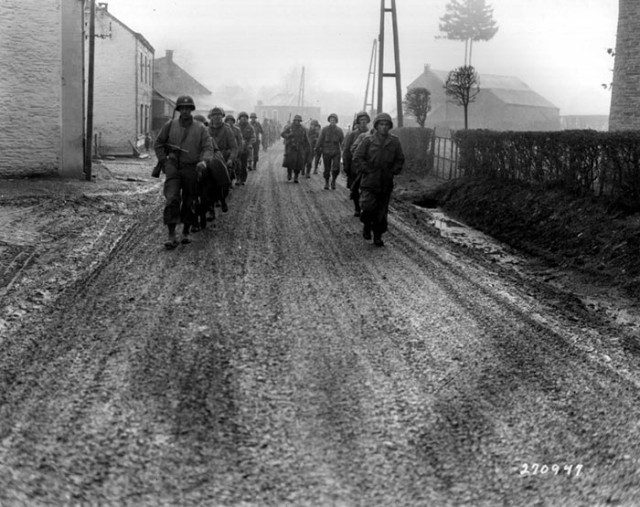
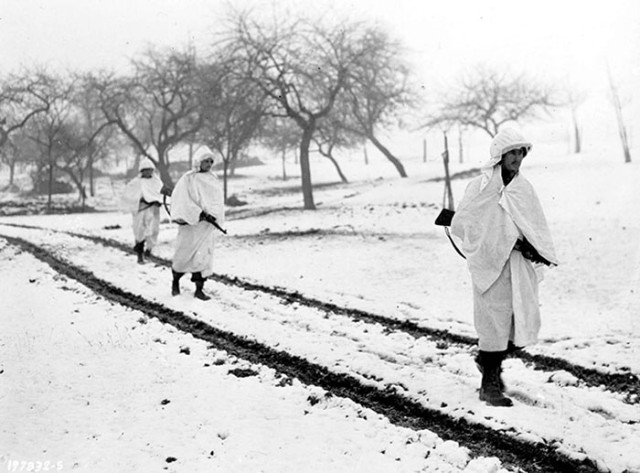
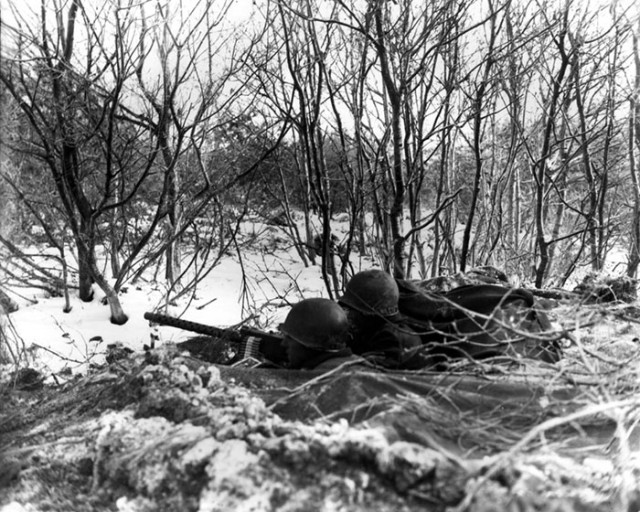
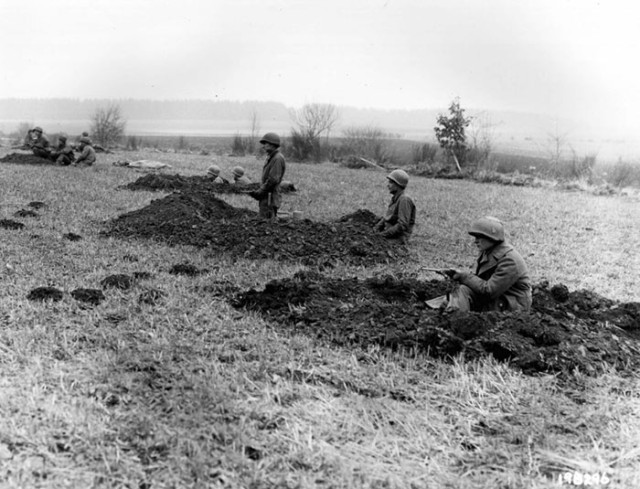
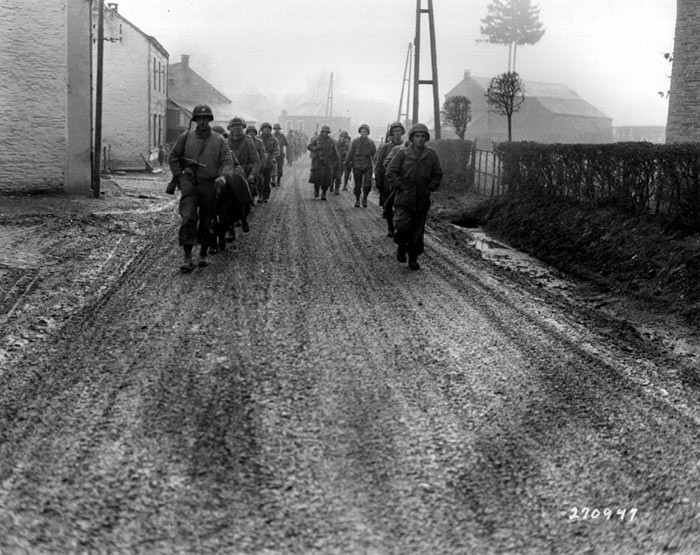
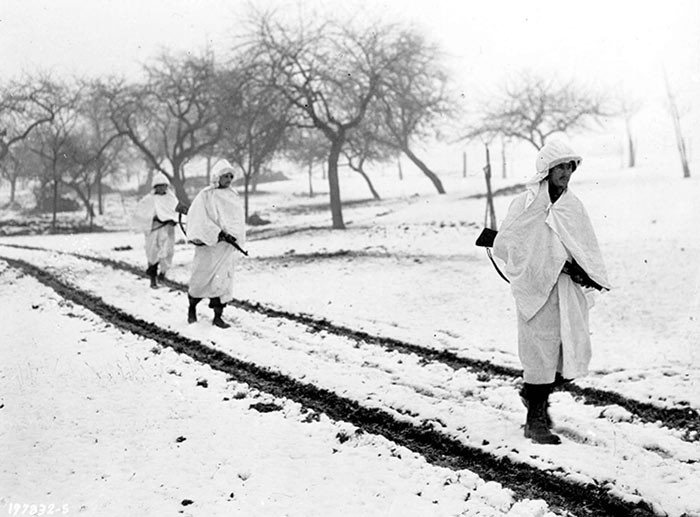
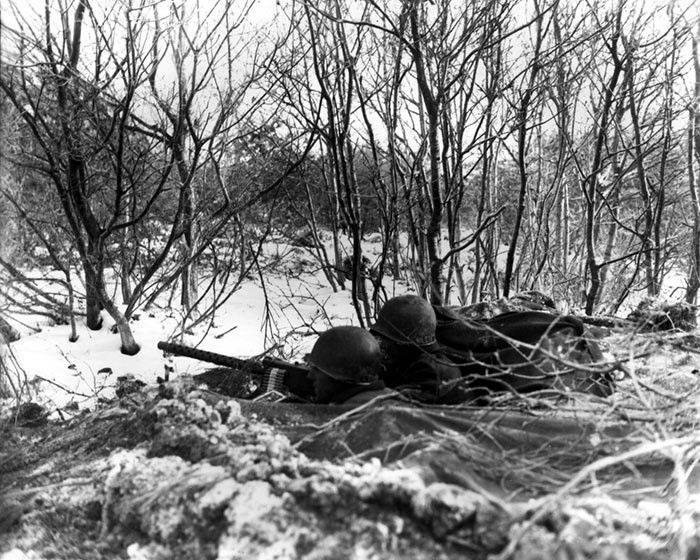
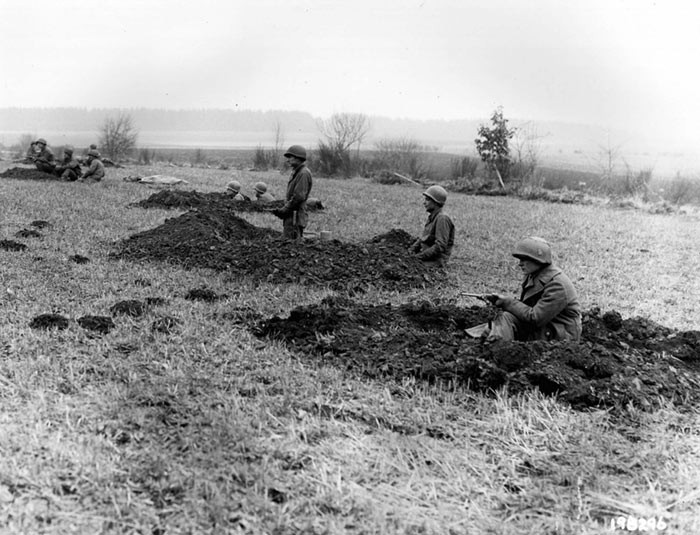
Social Sharing